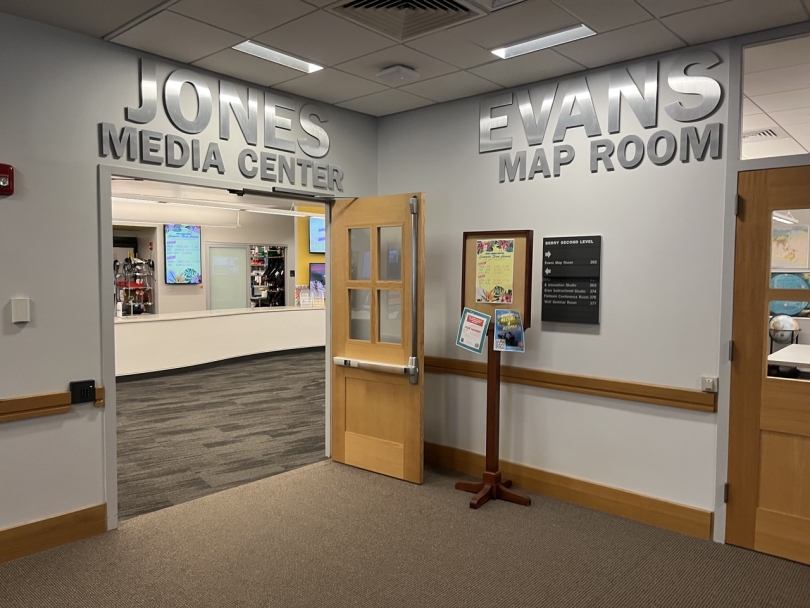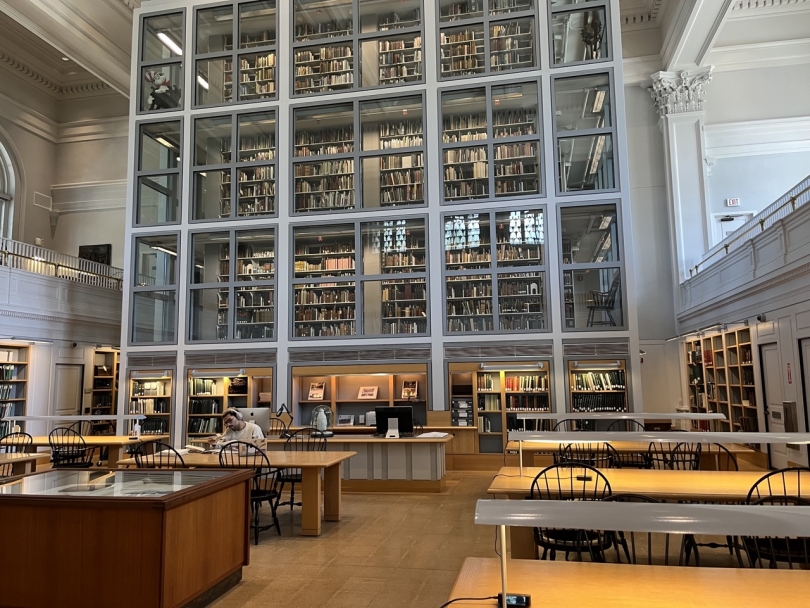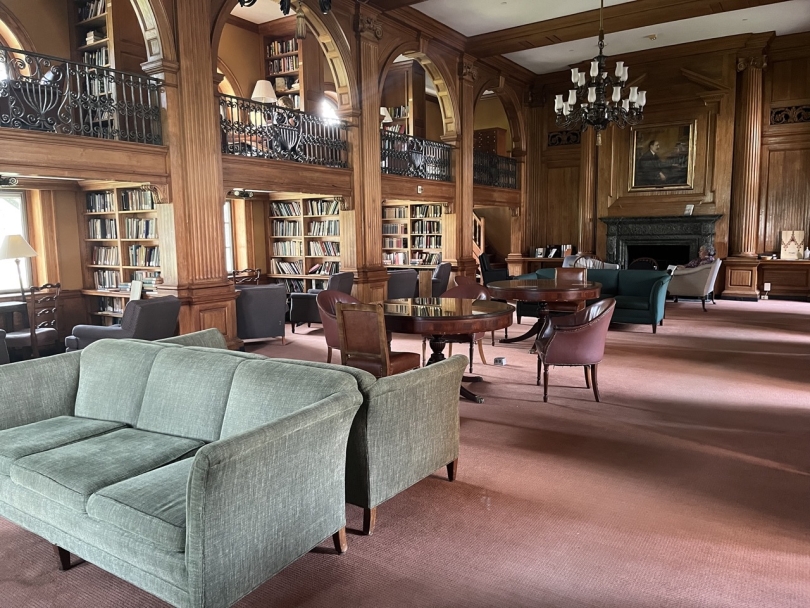
The Coolest Resources in the Library
As a longtime library employee, literature nerd, and English major, I adore Dartmouth's libraries. But you don't have to be a big reader or a Humanities major to benefit from what our library has to offer. Here are five of the best resources in Dartmouth's library system.
1. Jones Media Center
High-quality cameras and microphones, a sound booth, powerful editing software (and lessons on how to use it), plus every movie you could ever want—all this and more is offered to Dartmouth students at Jones Media Center FOR FREE! Whether you're working on a final or a personal project, you've got a huge array of no-strings-attached resources with which to film, record, and edit your material. JMC also offers regular events beyond their software classes, like 48-hour film competitions and other incentives to use their equipment... if you don't already have enough of a reason.

2. Research librarians
These are professional librarians with subject area specialties whose job is to help you—yes, you—do research, access materials, and even cite your work correctly. As an English major with a lot of friends in the humanities, I've interacted the most with Wendall Cox, who is both knowledgeable and very kind. But I've heard equally positive things about other subject librarians and can say from experience working in the library that they are enthusiastic and involved staff members.
3. Rauner Special Collections
Rauner is an incredibly cool place, not just because of the well-known crown jewels of the collection (a Shakespeare First Folio, anyone?) but also because of the rest of their collection. From old Dartmouth zines, publications, and journals to first editions of early modern and Renaissance poetry, Rauner has a mind-boggling collection of material. Professors and library staff alike go out of their way to get students working with Rauner materials—and why wouldn't they? Examining original texts is one of the keystones of historical and literary academic work. Getting this opportunity as an undergraduate has been extremely cool, because we have material that isn't available online or in a republished form. My favorite part of Rauner's collection is our huge selection of Penny Dreadfuls, which are British 19th-century true crime stories. But I've also worked with early modern translations of Ovid, Richard Crashaw's poetry, and the original, serialized version of Charles Dickens's novels. If you're looking to work with texts from the early modern period onward, Rauner may very well have what you need.

4. DartDoc and BorrowDirect
And if you can't find what you need in Baker-Berry, Rauner, Dartmouth's library depository, or one of our other libraries, you can always ask for it—and more often than not, you'll get it. Through BorrowDirect and DartDoc, you can easily request materials that Dartmouth doesn't own. The library staff then find another library that does have the material you need, and they either send you a PDF or the actual text. Most universities have an interlibrary loan system set up, but it's worth noting that our staff are exemplary in both the speed with which they can get your requests to you and the knowledge they have. Lots of students use DartDoc and BorrowDirect for textbooks, required reading, or research. Plus, for a book lover like me, this kind of system is literally a dream come true. I don't know what I'm going to do when I have to start buying all my books again.
5. Beautiful study spots
You already know this—so there is no need to belabor the point—but Dartmouth's library spaces are beautiful. Special shout-out to Sanborn Library, the English department's library and my personal favorite study space.



















